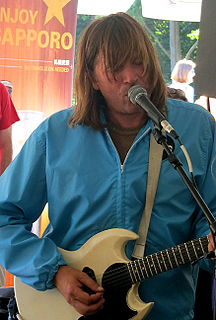A Quote by John Guare
James Joyce wrote the definitive work about Dublin while he was living in Switzerland. We're all where we come from. We all have our roots.
Quote Topics
Related Quotes
Write about winter in the summer. Describe Norway as Ibsen did, from a desk in Italy; describe Dublin as James Joyce did, from a desk in Paris. Willa Cather wrote her prairie novels in New York City; Mark Twain wrote Huckleberry Finn in Hartford, Connecticut. Recently, scholars learned that Walt Whitman rarely left his room.
A friend came to visit James Joyce one day and found the great man sprawled across his writing desk in a posture of utter despair. James, what’s wrong?' the friend asked. 'Is it the work?' Joyce indicated assent without even raising his head to look at his friend. Of course it was the work; isn’t it always? How many words did you get today?' the friend pursued. Joyce (still in despair, still sprawled facedown on his desk): 'Seven.' Seven? But James… that’s good, at least for you.' Yes,' Joyce said, finally looking up. 'I suppose it is… but I don’t know what order they go in!
A key text for me is James Baldwin's essays. And, in particular, his essay Stranger in the Village. It's a text that I've used in a lot of paintings. The essay is from the mid-'50s, when he's moved to Switzerland to work on a novel, and he finds himself the only black man living in a tiny Swiss village. He even says, "They don't believe I'm American - black people come from Africa." The essay is not only about race relations, but about what it means to be a stranger anywhere.
The censors have always had a field day with James Joyce, specifically with 'Ulysses,' but also with his other writings. The conventional wisdom is that this is because of sexually explicit passages (and there certainly are those). I have always thought that what the critics hated and feared about Joyce is his cry for human freedom.
To live with the work and the letters of James Joyce was an enormous privilege and a daunting education. Yes, I came to admire Joyce even more because he never ceased working, those words and the transubstantiation of words obsessed him. He was a broken man at the end of his life, unaware that Ulysses would be the number one book of the twentieth century and, for that matter, the twenty-first.
Mann and Joyce are very different, and yet their fiction often appeals to the same people: Harry Levin taught a famous course on Joyce, Proust, and Mann, and Joseph Campbell singled out Joyce and Mann as special favorites. To see them as offering "possibilities for living", as I do, isn't to identify any distinctive commonality. After all, many great authors would fall under that rubric.






































